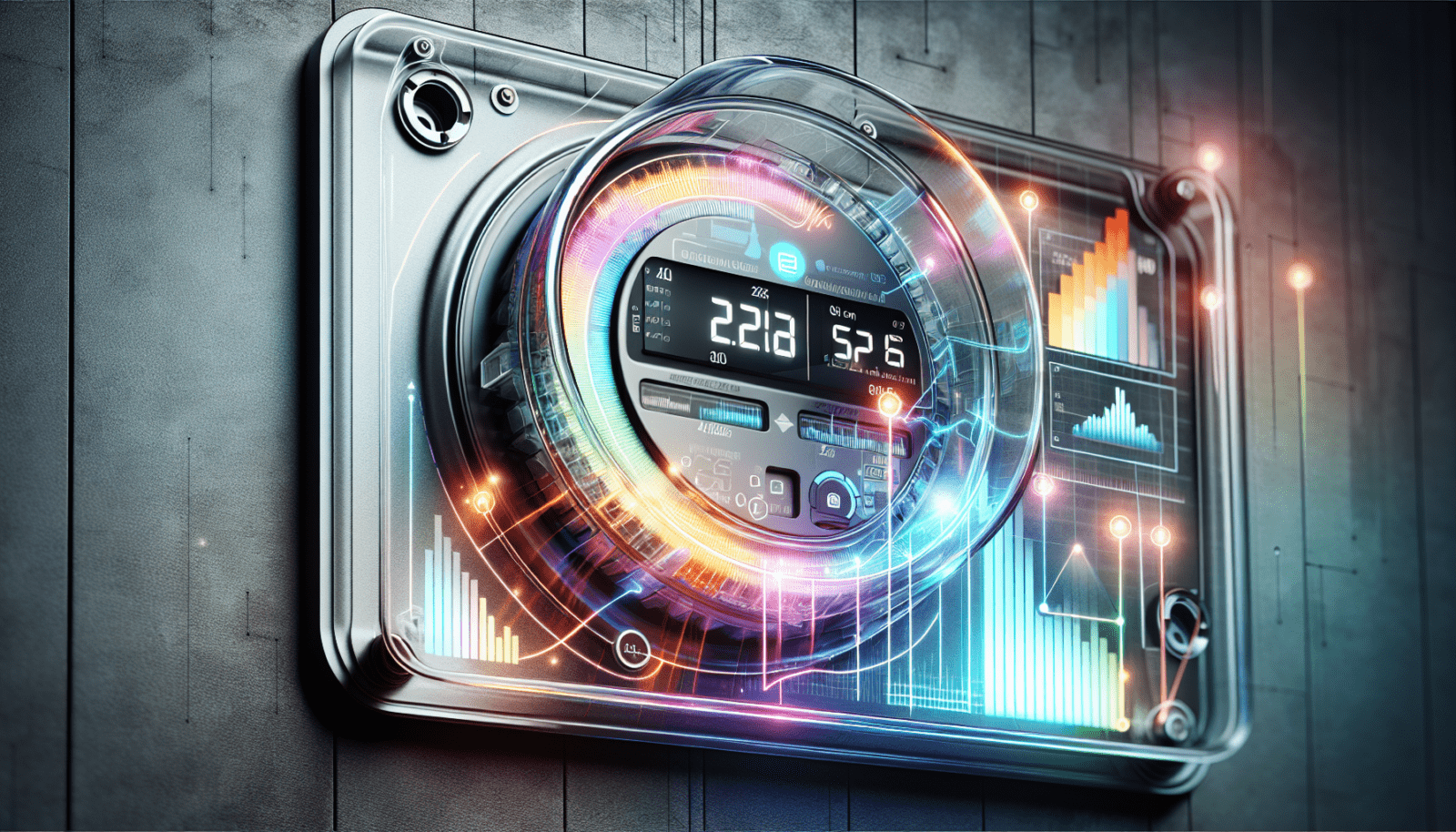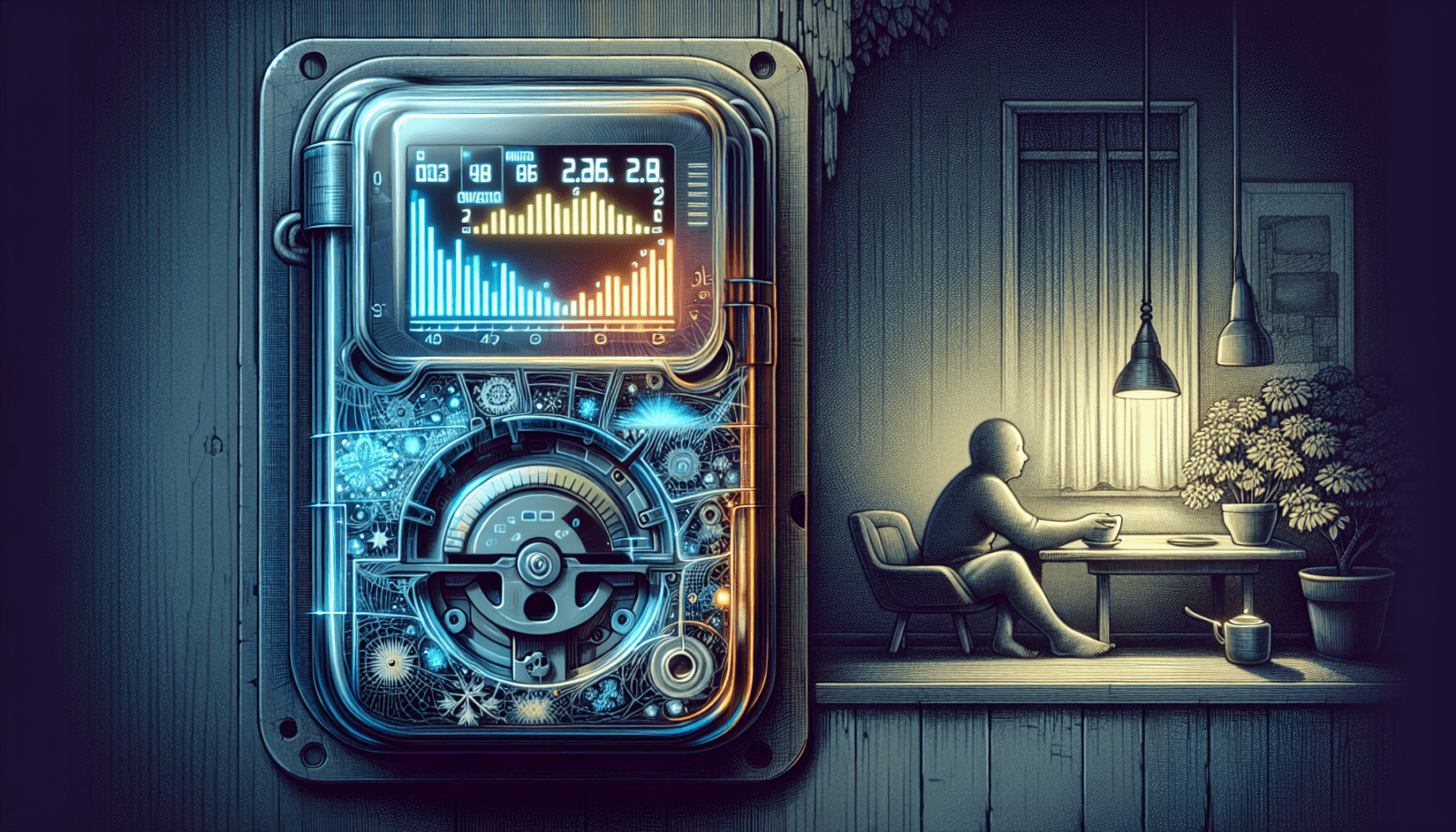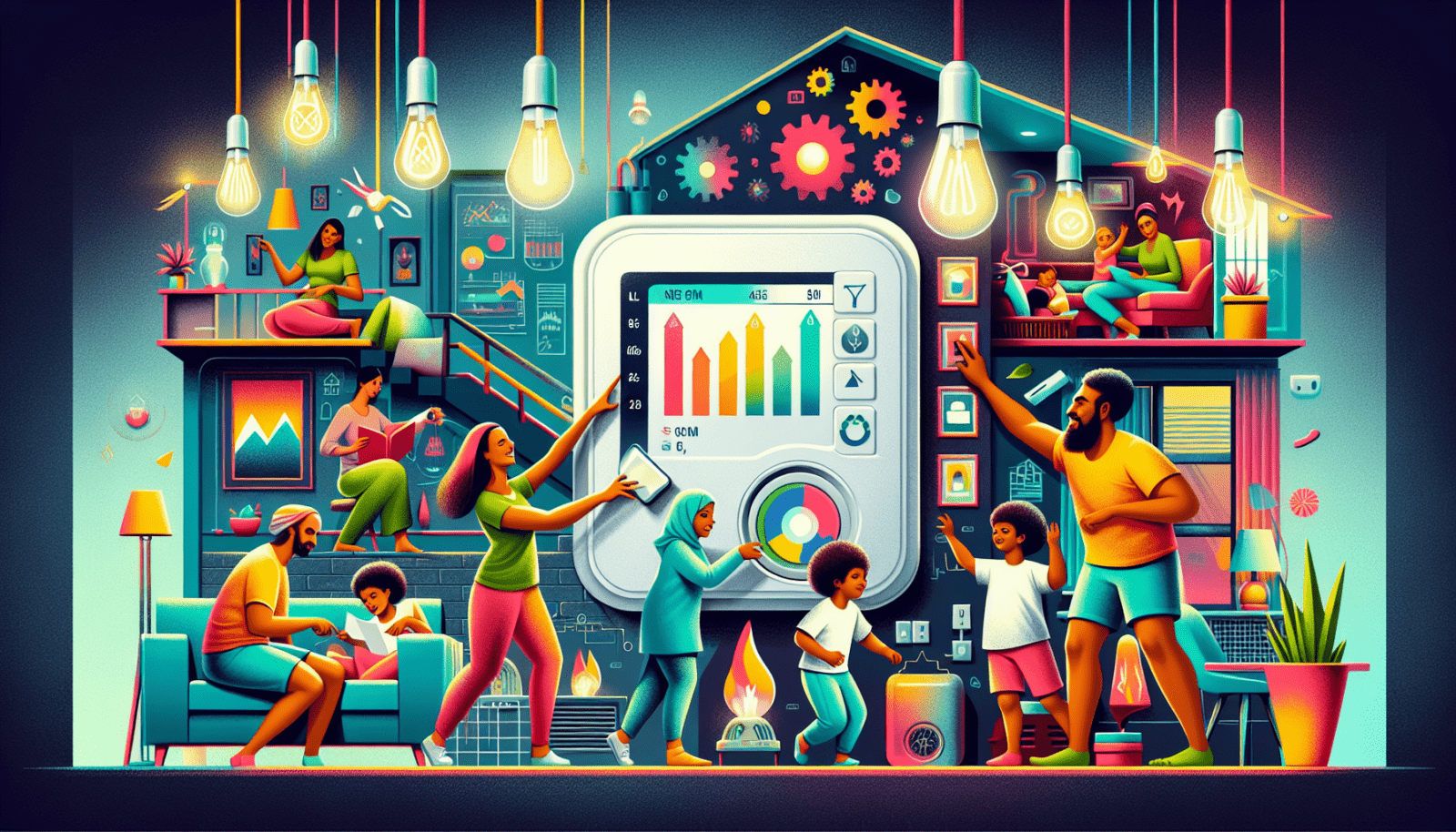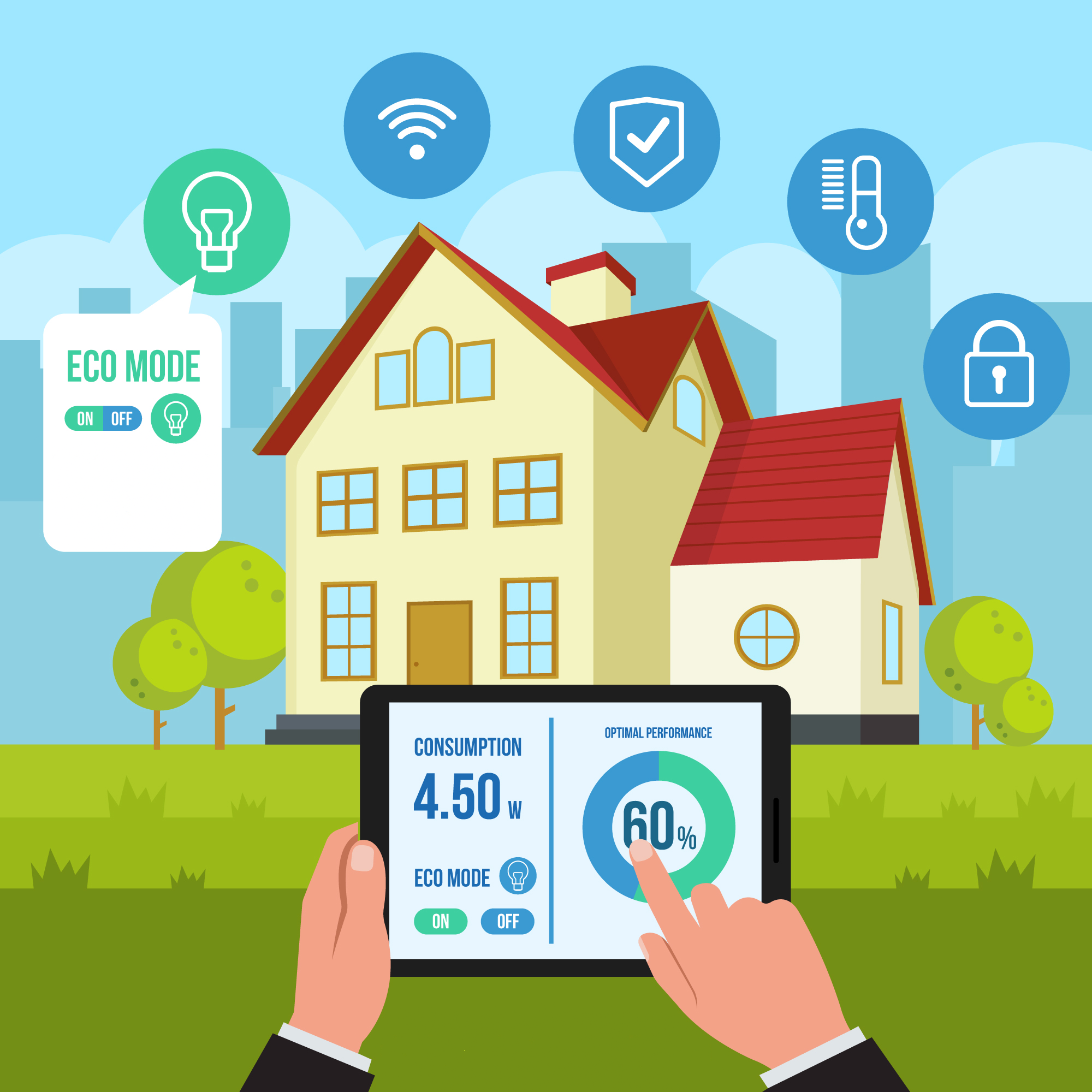11 Smart Meter Benefits – Improve Efficiency and Save Costs

Hichem Kraiem
Growth ManagerIntroduction
Smart meters bring more than just convenience; they offer tangible improvements to billing accuracy, energy efficiency, and cost savings. Upgrading to a smart meter can positively impact your energy usage—without any persuasive language or unnecessary details, just straightforward benefits.
Within the following article, we’ll highlight the benefits of smart meters in today’s digital world and how companies, industries, and businesses may take advantage of such innovation.
Understanding Smart Meters
A smart meter, in essence, is a digital device that autonomously records your gas and electricity usage. Instead of relying on an analog meter that requires manual readings, a smart meter uses current and voltage transformers to monitor electrical flow continuously.
The real game-changer, however, is how smart meters communicate this data. Unlike traditional meters, which require a person to physically read and record the meter readings, smart meters send this information directly to your energy supplier.
For example, electricity consumption can be automatically read, saved, reported, and analyzed simultaneously. They do this by transmitting energy consumption data remotely, often at intervals as frequent as every 10 minutes.
This eliminates estimated bills and meter readings, providing a much more precise reflection of your energy usage.
Waltero’s W-Solution
Waltero’s smart meter is the perfect solution as it is easy to install within a few minutes without having to replace your older meter whatever their type. Also, it provides real-time data and a monitoring system with an ultra-sonic feature to keep flow measuring extremely accurate along with automatic data reporting, with no need for manual flow readings ever again.

Besides flow measuring, Waltero’s smart meter is linked to the W-Cloud services which enables complete control over your information flow, ensuring data integrity and security at all times.
Whether it’s monitoring sensor outputs or managing user profiles, the W-Cloud provides real-time insights and streamlined operations, all in one place.
Smart meters provide
Smart meters provide real-time, accurate energy usage data, eliminating the need for estimated billing and manual meter readings which leads to more precise and reliable billing.
The visibility of real-time energy consumption offered by smart meters enables consumers and businesses to identify usage patterns, optimize energy efficiency, and integrate renewable energy sources more effectively.
Innovative technologies like Waltero’s W-Sensor upgrade existing utility meters to smart meters in addition to AI features and IoT to help minimize risks of energy loss of any kind, fostering a more sustainable future and offering environmental benefits through improved energy management and cost savings.
Additionally, the benefits of smart meters extend far beyond convenience and accuracy. They also provide a wealth of data that can be used to improve energy efficiency, reduce costs, and even protect the environment.
With the advent of generation smart meters like Waltero’s W-Sensor, these benefits are amplified, making smart meters not just a useful tool, but a critical component of a sustainable future.
11 Benefits of a Smart Meter
1. Improved Billing Accuracy
Improved billing accuracy is a key immediate benefit of a smart meter. Gone are the days of estimated bills, where charges were based on educated guesses rather than actual consumption. Those days are long gone with smart meters. By sending accurate readings of energy use directly to the supplier, smart meters eliminate the need for estimated bills and reduce errors in billing.
This is possible because smart meters:
Automatically send accurate readings
Communicate actual consumption data directly to utility companies, avoiding the need for estimates
Reduce the chance of human error in data collection
Provide precise and reliable billing, eliminating surprising energy bills

So, you can wave goodbye to the surprising energy bills and say hello to precise, and reliable billing.
2. No More Manual Readings
The elimination of manual meter readings is another significant advantage of smart meters. Traditional meters require a meter reader personnel to visit your property, manually record your energy use, and then relay this information back to the energy supplier. This process was not only time-consuming and labor-intensive but also prone to human error.
The W-Sensor smart meter, on the other hand, offers:
It automatically measures and transmits energy consumption data, eliminating the need for manual data collection.
It saves you time and effort.
It ensures more accurate data, as the readings are taken directly from the meter and sent to the energy supplier without any room for error.
Smart meters make energy management easier and more efficient.
Concerning the matter, you may find additional information on How Are Water Meters Read Remotely.

Such a solution of smart meters can definitely be an enormous asset not just for energy utilities or suppliers but also for industrial businesses.
3. Real-Time Data of Energy Consumption and Flow Levels
The quality of the data collected is just as important as the elimination of manual readings. Smart meters capture real-time energy consumption data by recording electricity usage frequently, often in intervals of 15 minutes or less.
This data is then transmitted wirelessly to the energy supplier at regular intervals to keep billing information current. In Waltero, collected info is transmitted to a Cloud service which is integrated with IoT and AI technologies to help make data-driven decisions, suggest solutions, and minimize risks.

As a result, utility companies have access to actual energy usage data, ensuring that customers are billed based on their real consumption rather than estimates.
This means more accurate bills, without the need for any adjustments or corrections. With smart metering system, what you see on your bill is precisely what you’ve used.
4. Enhanced Energy Efficiency
Enhanced energy efficiency is a significant benefit of smart meters, going beyond just accurate billing. With an in-home display, smart meters provide users with clear visibility of their energy consumption patterns.
This real-time data can be a powerful tool, allowing you to see exactly how much energy you’re using and when, and adjust your habits accordingly.

For example, you might notice that your electricity usage spikes in the evening when you’re cooking dinner, watching TV, and running the washing machine all at once. By spreading these activities out or using energy-efficient appliances, you could significantly reduce your energy use and save money on your bills.
Moreover, smart meters also pave the way for easier integration of renewable energy sources. By providing precise data on energy consumption, smart meters can help utilities and consumers optimize overall energy usage, making it easier to incorporate solar power, wind energy, and other renewable sources into the energy mix.
5. Identifying Usage Patterns
Besides providing real-time data, smart meters also aid in identifying patterns in your energy usage. Using advanced software and algorithms, smart meters analyze your usage and display the data in near real-time. This can reveal patterns such as peak usage times and standby consumption, giving you a deeper understanding of your energy habits.
For instance, Waltero’s smart meter might find that your personal energy consumption spikes in the morning when everyone is getting ready for work or school. Or perhaps you’re using more energy than you realized while your appliances are on standby.
By identifying these patterns, you can make informed decisions about your energy usage and take steps to reduce consumption and save money.
6. Implementing Energy-Saving Measures
You can use insights from smart meters to implement energy-saving measures. By identifying potential energy waste, smart meters can help you adjust your habits and reduce your energy consumption. For example, you might decide to turn off your air conditioning when you’re not home or switch to LED lights to save on electricity.
In addition to identifying energy waste, smart meters also provide tools to help you manage your energy usage more effectively. Displayed datas connected to smart meters can be used to set energy budgets and alert you when you’re approaching those limits or when there’s an unexpected rise in energy use. This can help you stay on top of your energy consumption and adjust as needed.
Moreover, the data from smart meters can encourage you to adopt energy-saving tips, leading to behavioral changes that can have a positive impact on your energy bills.
Some energy-saving tips include:
Turning off lights when you leave a room
Unplugging electronics when they’re not in use
Using energy-efficient light bulbs
Adjusting your thermostat to save energy
Insulating your home to reduce heat loss
These small changes can add up to big savings over time.
7. Cost Savings for Consumers and Businesses
Not only individual consumers, but businesses too can reap significant rewards from smart meters. By providing detailed insights into energy consumption, smart meters can help businesses:
Optimize their energy usage
Reduce costs
Cut operating costs
Reduce their carbon footprint
Smart meters offer a valuable solution for businesses of all sizes, and many are choosing to install smart meters to reap the benefits of such a system.
But the cost savings don’t stop there. With smart meters, consumers and businesses also have access to better tariffs. For example, smart meters enable the use of time-of-use tariffs, which charge different rates at different times of day. By shifting energy consumption to off-peak hours when rates are lower, users can save even more on their energy bills.
8. Reduced Energy Consumption
For many individuals and businesses striving to reduce their energy consumption, smart meters serve as an invaluable tool. By providing real-time data on energy consumption, smart meters give users the information they need to manage their energy usage effectively.

For example, an in-home display linked to a smart meter can provide instant insights into current energy use and associated costs. This can help users identify where they’re using the most energy and make immediate adjustments to reduce consumption.
Whether it’s turning off lights, adjusting the thermostat, or using appliances more efficiently, these small changes can lead to significant reductions in energy use and cost savings.
9. Access to Better Tariffs
Access to better tariffs is another significant advantage provided by smart meters. With a smart meter, users can take advantage of exclusive discounts and cheaper rates, as well as innovative time-based rate programs.
For instance, utilities can leverage smart meters to support demand response programs, which allow users to save money by adjusting their energy usage in response to grid demands.
Specific programs such as Peak Day Pricing and Peak Time Rebate are offered by utilities to smart meter customers to encourage reducing electricity use during peak periods for savings. These programs not only save users money but also help utilities manage the demand on the grid, making the entire system more efficient.
10. Environmental Benefits
Smart meters offer significant environmental benefits in addition to cost savings and convenience. By enabling users to monitor their energy consumption patterns, smart meters help:
Manage and reduce carbon emissions effectively
Take a crucial step towards a more sustainable future
Combat climate change by reducing energy consumption
In addition to reducing carbon emissions, smart meters also facilitate the integration of renewable energy sources. By providing precise data on energy consumption, smart meters can help utilities optimize their energy mix, making it easier to incorporate solar power, wind energy, and other renewable sources.
Furthermore, technologies like Waltero on sustainability, support the continued use of existing analog meters, enabling a cost-effective transition to advanced metering without a full infrastructure overhaul.
11. Preparing for a Smarter Future
Looking ahead, there’s no doubt that smart technologies such as smart meters will take on an increasingly important role. From enhanced efficiency and safety to improved quality of life, smart cities are set to transform urban living through a connected network of sensors and high-speed communication. And with smart meters at the heart of these developments, we can expect even greater improvements in energy management and cost savings.
But while we’ve made significant progress in smart city developments, there’s still considerable potential for further expansion and refinement of these technologies.
With the right tools, like Waltero’s W-Sensor, and a commitment to sustainability, we can create smarter, more efficient cities that benefit everyone.
Waltero’s W-Sensor: A Game Changer for Utility Metering
Waltero’s W-Sensor distinguishes itself as a game-changer in the world of smart metering. Engineered for infinite scalability, the W-Sensor allows utility providers to implement smart metering system capabilities across any number of devices, from a single home to an entire city. But what sets the W-Sensor apart is its universal compatibility. It’s designed to upgrade all types of utility meters to smart digital meters, regardless of their make or model.
The installation of the W-Sensor is a straightforward process that can be completed within minutes, without the need for highly trained technicians. This not only makes the transition to smart meters easier and more cost-effective, but it also allows for the continued use of existing old meters, eliminating the need for a full infrastructure overhaul.
Potential customers can experience the benefits of the W-System firsthand with Waltero’s exploratory kit, which includes:
The necessary hardware
Software
Training
Support
It’s an innovative solution that’s not only transforming the way we monitor and manage energy consumption but also paving the way for a smarter, more sustainable future.
Conclusion
In conclusion, the benefits of smart meters represent a significant leap forward in energy management. By providing real-time data on energy consumption, they offer a range of benefits, from improved billing accuracy and convenience to enhanced energy efficiency and cost savings. And with the advent of generation smart meters like Waltero’s W-Sensor, the benefits of smart meters are more accessible than ever.
As we prepare for a smarter future, it’s clear that smart meters will play a crucial role. Whether it’s reducing carbon emissions, integrating renewable energy sources, or simply saving money on energy bills, smart meters offer a solution that’s not just smart, but sustainable.
%3Aformat(webp)&w=3840&q=75)



